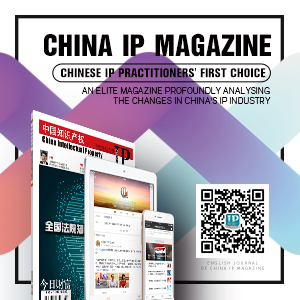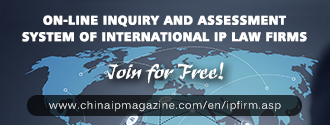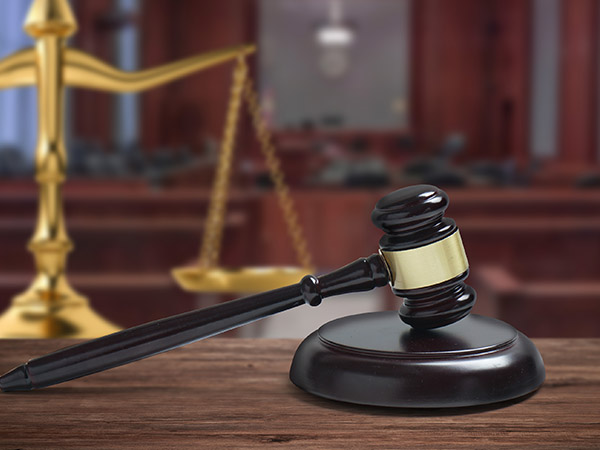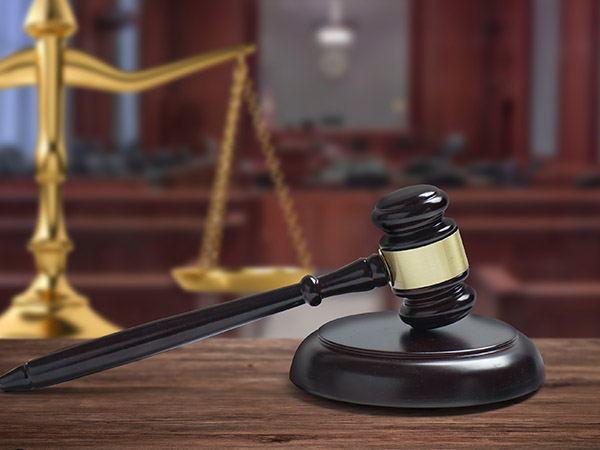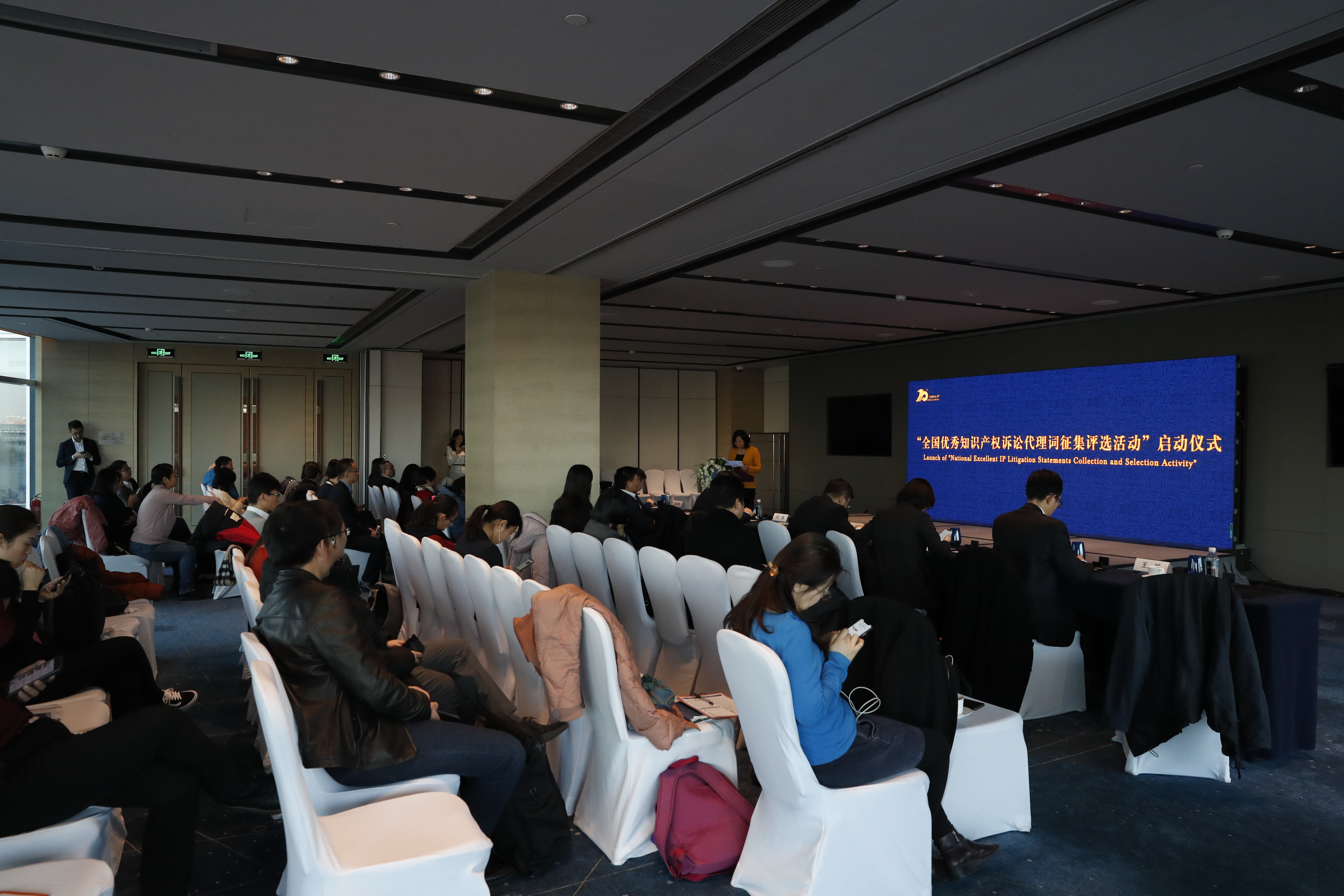
The past 2019 is another crucial year in the history of China's intellectual property industrial development. The successive release of various central documents on improving the protection of intellectual property rights, the rapid advancement of the punitive compensation system for intellectual property rights infringement, the revision and implementation of Patent Agency Regulations, the Trademark Law, the Patent Agency Management Measures, and the Patent Agent Qualification Examination Measures and other laws and regulations, all of them have created opportunities for the accelerated development of China and even the global intellectual property consulting service industry. With the transformation and upgrading of China's economy to high-quality development, intellectual property will also play an increasingly important role in it.
Under this background, the 2020 Global Intellectual Property Advisory Service Industry Alliance Annual Meeting with the theme of “Efficiency & Value: High-End IP Service Promotion” co-sponsored by the 10th China IP International Annual Forum & 2020 Annual Conference of In-House IP Managers in China and the Beijing Intellectual Property Law Research Association was launched in which representatives from various well-known intellectual property consulting service agencies and intellectual property administrative and academic institutions were invited to discuss the development of Chinese and foreign intellectual property consulting service industries. The Meeting consisted of three sessions: keynote speeches, the launching ceremony of "National Outstanding Intellectual Property Litigation Statements Collection and Selection Activities," and round-table discussions. Tommy Zhang, President and Editor-in-Chief of China Intellectual Property Magazine, chaired this meeting.
In the keynote speech session, Professor Qu Sanqiang, Chairman of the Beijing Intellectual Property Law Research Association, made the first address in which he pointed out that 2019, witnessing the economy of China turned to high-quality development, could be said as a year of transformation and upgrading. It was also a year with changing international and domestic situations. No matter in China's foreign economic and trade frictions or its own development, intellectual property rights were playing an increasingly important role. Qu also said that despite that intellectual property had currently been endogenized and localized in China, to fully integrate the intellectual property system into the genes of China's society and economy, further cooperation of theoretical construction, legal protection and practical summarization is still needed. In the end, Professor Qu encouraged all parties to work together to actively contribute their views and plans for the development of China's intellectual property cause.
Zhu Zhengqiang, Deputy General Manager of Sunshine IP Group, made a speech on the theme of "Enterprise Intellectual Property Legal Risks and Service Practices in the New Situation." in which he explained the above topics from three aspects: the current new situation and new normal state of intellectual property rights in China, the legal risks of intellectual property rights in enterprises, and the specific practice of high-end intellectual property service industries. Zhu concluded that to deal with their own intellectual property legal risks, enterprises should apply for rights confirmation as soon as possible, rationally distribute IP, do IP search and early warning analysis, standardize internal IP management system and formulate reasonable litigation strategies. Moreover, they could also utilize high-end services provided by intellectual property service agencies.
Yan Dong, General Manager of Beijing LONYUAN IP Consulting Co.Ltd., made a speech on the theme of “Linkage of Upstream and Downstream Operations to Form a Closed-Loop Patent Operation System” in combination with the practical experience of LONYUAN IP. He pointed out that the cultivation of high-value patents is a must for high-quality development of the patent agency service industry, and patent operation is the realization of high-value patent cultivation. The patent operation is a purpose and orientation. If the service agency can benefit the enterprise through the patent operation, the enterprise would pay more attention to and even increase its investment in intellectual property disposal or R & D, so as to reach the effect of paying back high-value patents.
In the speech of Dou Xinlei , General Manager of Beijing Hartend Intellectual Property Service Co., Ltd., he started from strategic analysis and explained how companies can use intellectual property as a key tool for business competition and competitiveness enhancement. He pointed out that enterprises should break away from the traditional "quantitative theory" thinking in patent and trademark operations, but use dynamic strategies to create new service models through the nature of intellectual property rights; IP service agencies should use a global perspective and highly fit corporate strategies, use intellectual property, information security and policy tools to create comprehensive solutions based on corporate technology protection and business competition needs.
Wang Jinglin, Patent Attorney of Beijing Wang Jinglin Intellectual Property Agency, combined a large number of specific cases in the keynote speech and shared his patent writing skills summarized in practice in the field of artificial intelligence and big data. He pointed out that under the framework of the existing Patent Law in China, although patent applications for core algorithms are often regarded as rules and methods of intellectual activity and thus not authorized, if the method of patent writing is appropriate, such as by binding application scenarios or writing hardware, you can also get authorization. The successful writing and authorization of core algorithm related patents can not only highlight the improvement of the service ability of patent agents but also promote the healthy development and virtuous circle of the technical field and the intellectual property service industry.
After the keynote speech session, Liu Ying, Professor at China University of Political Science and Law, hosted the launching ceremony of "National Excellent Intellectual Property Litigation Statements Collection and Selection" and delivered a speech. Professor Liu pointed out in her speech that the litigation statement is a valuable treasure and an important learning material generated by judicial practice. Excellent statements have high research value and also help to improve the litigation ability of IP attorneys and patent agents, the service capabilities of intellectual property advisory services, and promote the development of high-end IP services. This activity also fits the theme and purpose of this annual conference. Later, Professor Liu gave a short introduction to the organizer, agenda, selection criteria, and award setting of the event.
After the launching ceremony, Gao Yongyi, Executive Vice President of Beijing Intellectual Property Service Association and Secretary-General of Beijing Patent Agents Association, Cui Lingling, Director of Baidu Intellectual Property, Li Xin, General Manager of Megvii Legal Affairs Department, Gu Yongjiu, Director of Haidian Intellectual Property Court, Tao Qian, Director of the Intellectual Property Innovation and Competition Research Center, China University of Political Science and Law and Wang Ye, China consultant of the World Intellectual Property Organization (WIPO), participated in the round-table discussion. Focusing on the theme of “Upgrading the Capabilities of High-End IP Services,” they shared their views from the perspectives of talent cultivation, technology application, management innovation, international cooperation, service chain building and other aspects.
The completion of the Alliance Annual Meeting provided many useful lessons for the improvement of the high-end service capabilities of China's intellectual property service industry.




